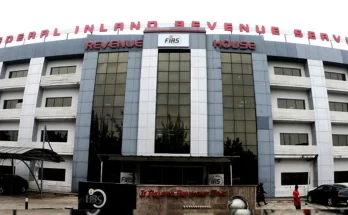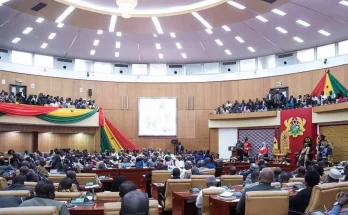- Reform aims to ease burden, promote fairness, and expand compliance base
Nigeria to Grant 50 Tax Exemptions for Low-Income Earners and SMEs from 2026. Nigeria’s Presidential Fiscal Policy and Tax Reforms Committee has announced a landmark tax relief package, unveiling 50 new exemptions and deductions targeted at low-income earners, small and medium-sized enterprises (SMEs), and average taxpayers.
The initiative, which takes effect on January 1, 2026, forms part of the federal government’s broader plan to create a more equitable and efficient tax system while improving business conditions nationwide.
Committee Chairman Mr. Taiwo Oyedele described the reform as “one of the most people-focused tax policies in Nigeria’s history,” emphasizing inclusivity and simplicity as its core principles.
“Our focus is to ease the burden on low-income earners, reward productivity, and promote voluntary compliance. The new laws will make taxation fairer, simpler, and more growth-oriented,” Oyedele explained in a statement released via his official X (formerly Twitter) account.
Key Highlights of the 50 Tax Reliefs
1. Personal Income Tax (PAYE)
- Individuals earning at or below the national minimum wage will be completely exempt from income tax.
- Those with annual gross income up to ₦1.2 million (about ₦800,000 taxable income) will pay no tax.
- Lower PAYE rates will apply to individuals earning up to ₦20 million yearly.
- Gifts and charitable donations will now qualify for tax exemption.
2. Individual Deductions and Reliefs
- Contributions to pension, health insurance, and the National Housing Fund will remain deductible.
- Interest paid on home loans, life insurance, or annuity premiums will be deductible.
- A new rental relief of up to ₦500,000 or 20% of annual rent (whichever is lower) will be allowed.
3. Pensions and Employment Compensation
- All retirement benefits and gratuities under the Pension Reform Act remain tax-free.
- Compensation for job loss up to ₦50 million will not attract tax.
4. Capital Gains Tax (CGT)
- The sale of owner-occupied homes and personal assets worth up to ₦5 million are exempt.
- Investors can sell up to two private vehicles annually without CGT.
- Gains from shares under ₦150 million per year—or ₦10 million per transaction—will be exempt.
- Investors who reinvest profits into new ventures will qualify for relief.
5. Companies Income Tax (CIT)
- Small companies earning below ₦100 million with assets under ₦250 million will pay 0% CIT.
- Startups recognized under government innovation programs will enjoy tax holidays.
- Employers offering salary increases or transport support to low-income workers will get 50% compensation relief.
- Agricultural producers in crop, livestock, and dairy sectors will receive five-year CIT holidays.
6. Development Levy
- Micro and small enterprises are fully exempt from the 4% development levy.
7. Withholding Tax
- SMEs, manufacturers, and farmers are exempt from withholding tax on income and supplier payments.
8. Value Added Tax (VAT)
- Essential goods and services—such as food, education, healthcare, rent, and medicines—remain VAT-free.
- Small businesses earning under ₦100 million annually will not be required to charge VAT.
- VAT exemption extends to baby products, disability aids, sanitary items, agricultural inputs, humanitarian goods, and electric vehicles or parts.
9. Stamp Duties
- Electronic transfers under ₦10,000, salary payments, and intra-bank transactions are exempt.
- Transfers linked to government securities or stock trading are also excluded from stamp duties.
See Also: South Africa Extends Global Minimum Tax Implementation Deadline to March 2026
Promoting Accurate Tax Awareness
Beyond fiscal relief, Oyedele announced the launch of a public awareness initiative encouraging responsible tax education.
Through the “Influencing for Good” campaign, the committee will train verified social media creators who consistently share accurate tax information.
“Misinformation spreads quickly, often benefiting its source but misleading the public. Correct information may spread slower, but it builds trust and empowers citizens,” Oyedele noted.
Context: Nigeria’s Broader Tax Reform Agenda
The rollout follows President Bola Tinubu’s signing of four landmark tax reform bills in June 2025 — a key milestone in the country’s fiscal modernization efforts.
The newly enacted laws include:
- Nigeria Tax Act (NTA), 2025
- Nigeria Tax Administration Act (NTAA), 2025
- Nigeria Revenue Service (Establishment) Act (NRSEA), 2025
- Joint Revenue Board (Establishment) Act (JRBEA), 2025
According to the Presidency, these laws collectively aim to increase Nigeria’s tax-to-GDP ratio to 18% by 2030, expand the tax net, and streamline tax administration across federal, state, and local levels.




